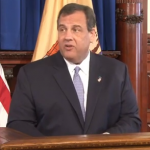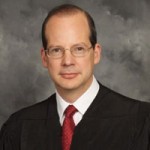NJ Supreme Court rules for themselves, fellow judges
The New Jersey Supreme Court ruled 3-2 with Chief Justice Stuart Rabner not participating, this morning in Paul M. DePascale v State of New Jersey that the pension and health benefits reforms passed by the legislature and signed into law by Governor Christie last year violates the State Constitution’s provision prohibiting a reduction in judges salaries during their terms. Thus, New Jersey Judges will not be contributing more to their pensions and health benefits, unless the Constitution is amended.
The issue now goes back to the Legislature. Legislation putting a Constitutional amendment on the ballot this fall was held up in June pending the Supreme Court’s decision.











In Pennsylvania, all judges, including state Supreme Court justices, are directly elected by the voters themselves. Once elected, judges that want to keep their black robes must face the electorate in periodic retention votes. Not surprisingly, the people of Pennsylvania rarely see the sort of judicial activism that is so prevalent here in New Jersey.
On a related note, Chris Christie is a member of the judicial elite. For political reasons, he will bitch about today’s decision. He won’t, however, propose amending New Jersey’s constitution so that judges are directly elected to the bench instead of being appointed to the bench. In short, Christie offers no real solution to the problems associated with an activist judiciary. Chris Christie is part of the problem.
The attorney general and the 21 county prosecutors should be elected as well. In New York and elsewhere, they are elected and not beholded to the party or person that appointed them to that position. It avoids conflicts of interests.